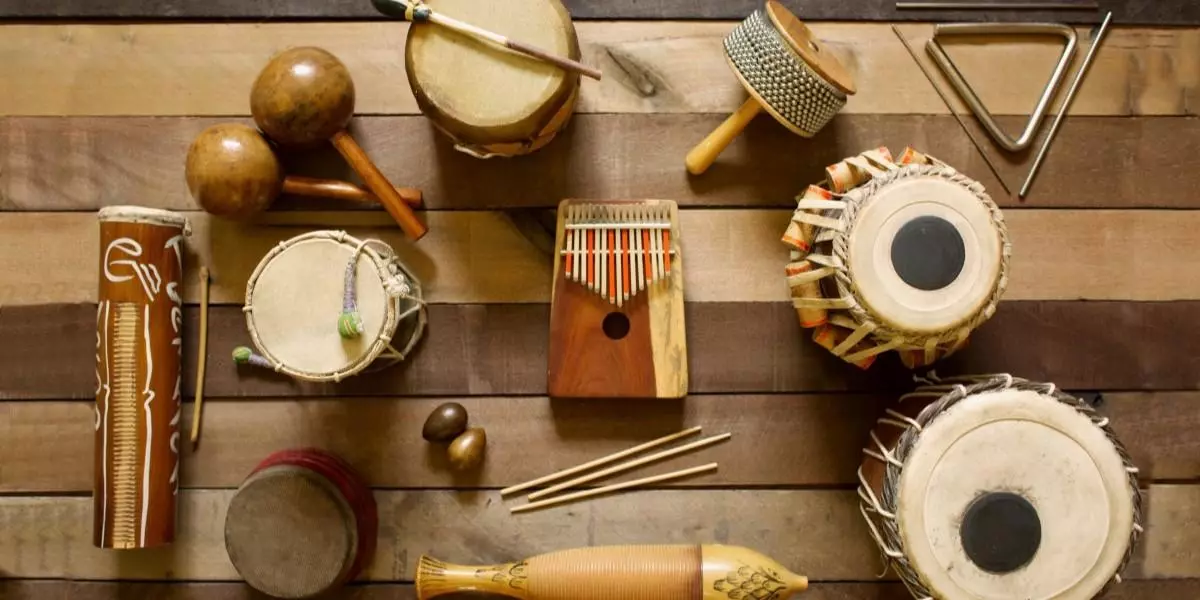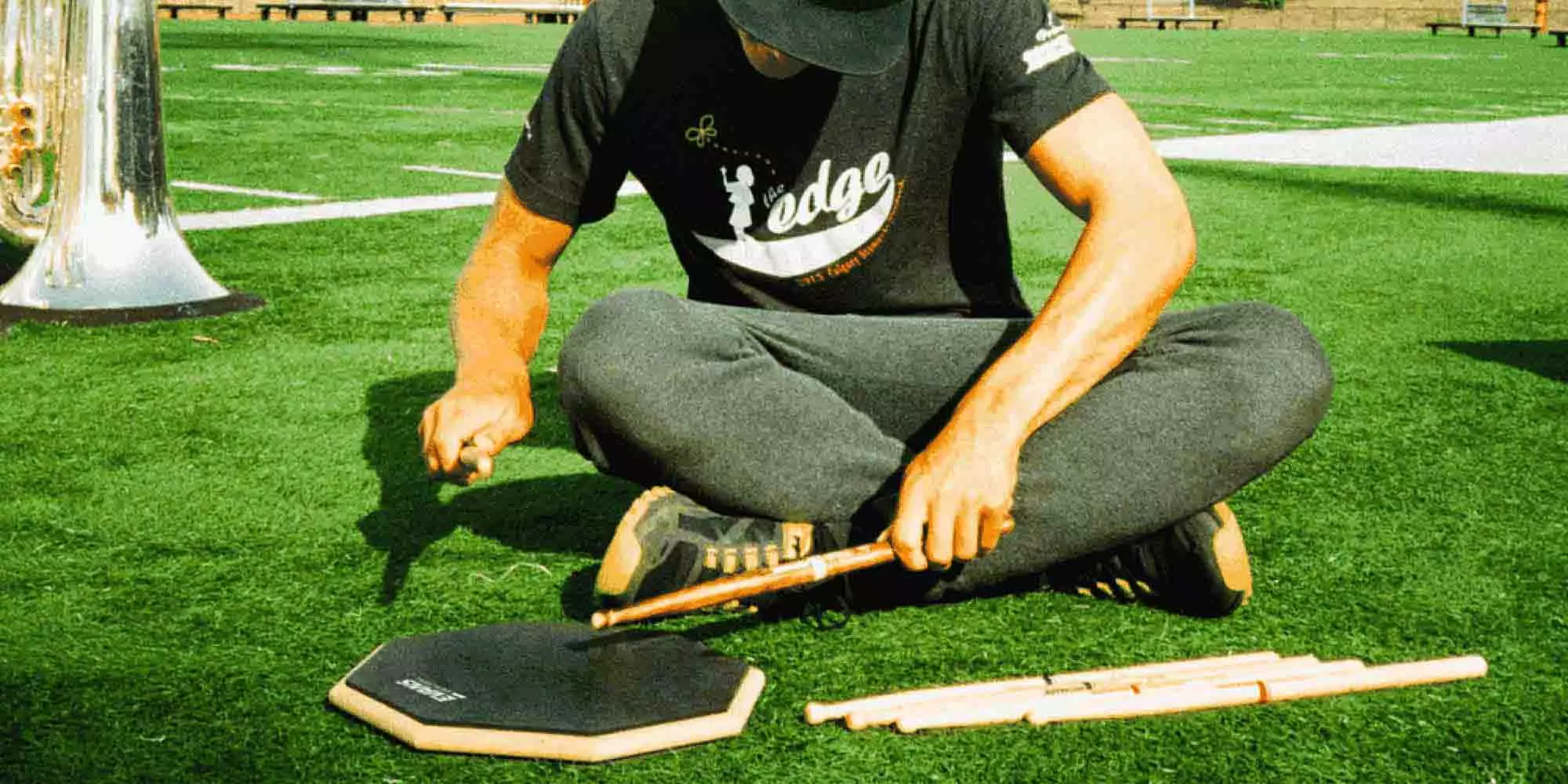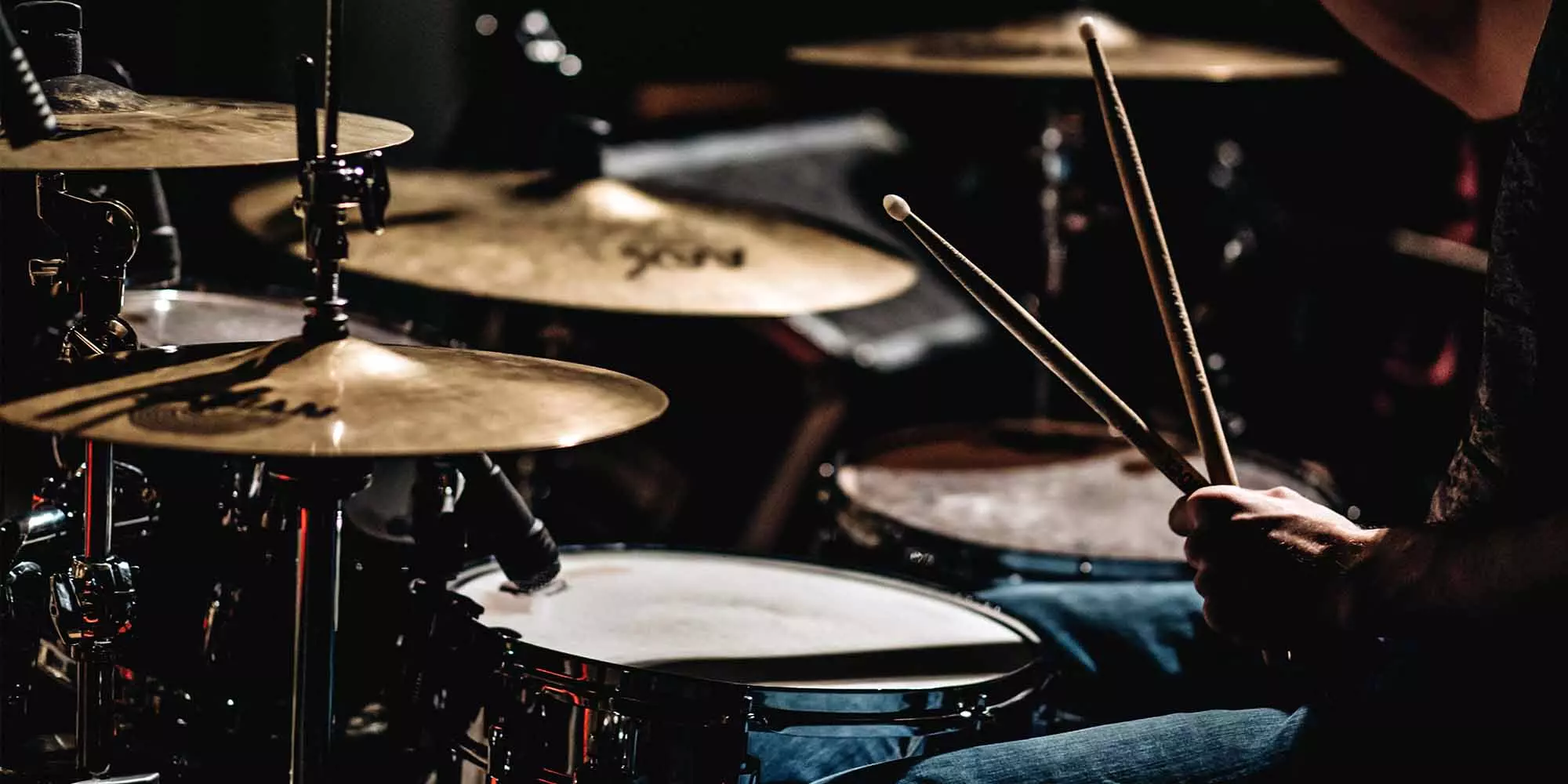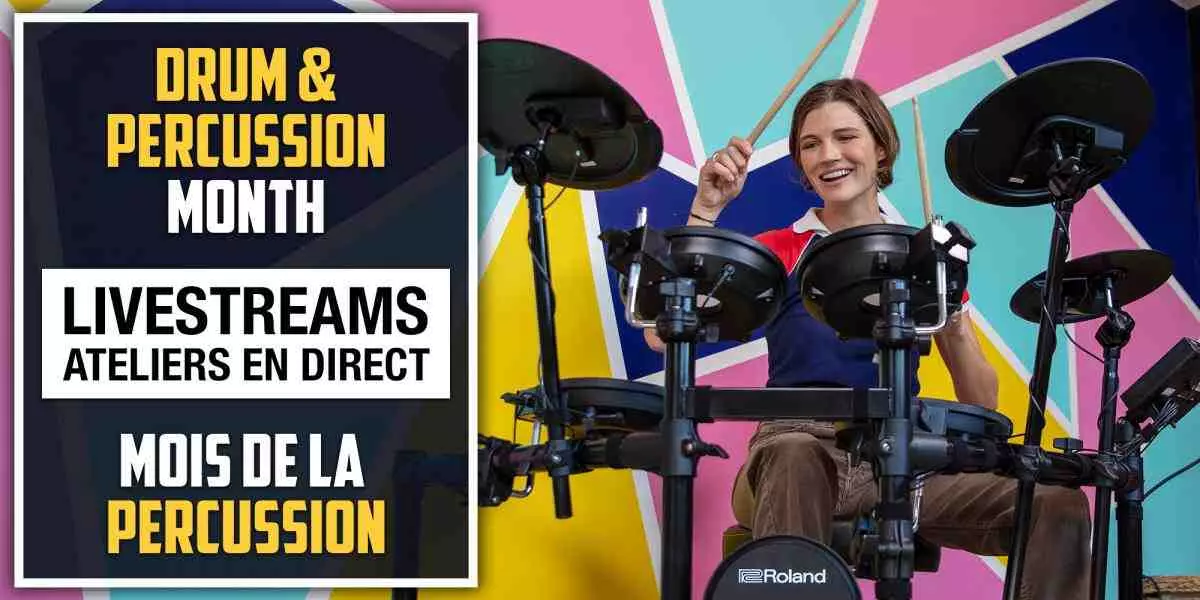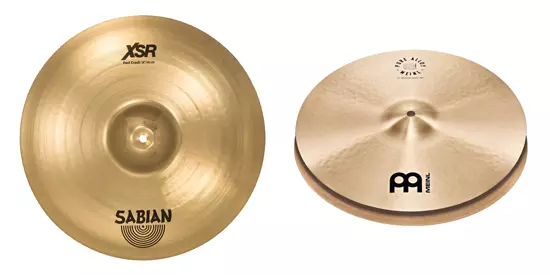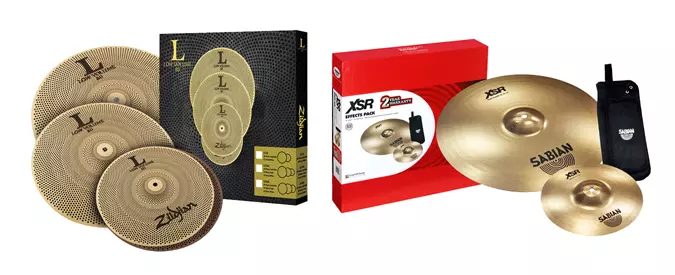Choosing Cymbals: A Guide for the Beginner
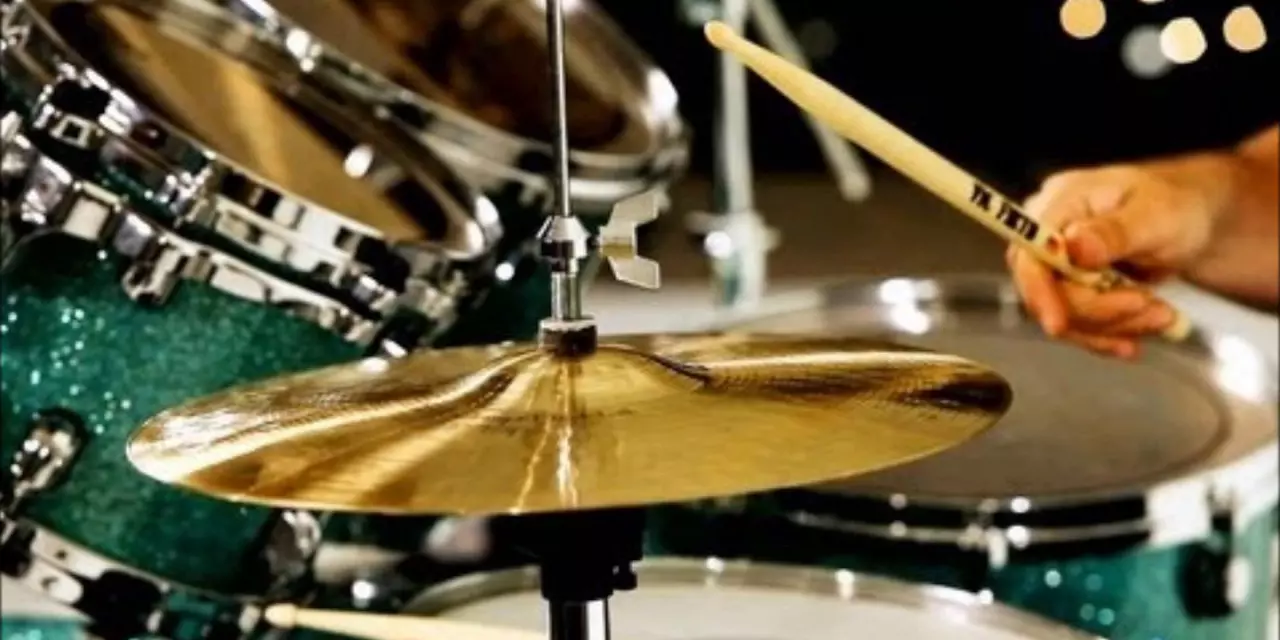
In some ways, choosing your cymbals is a more complex endeavour than choosing your drums. While carefully choosing your drums is very important, the types of cymbals you pick will really help you to define your "voice" as a drummer.
When I was younger, I was rather shy about trying cymbals out in a store. I was afraid that I was somehow hitting them “incorrectly”, or that I was disturbing the guy behind the counter. Basically, I would just “tap” a cymbal lightly – and if it was in the price range I wanted – I would buy it. I was quite unconscious in my cymbal choices.
Now that I have become a drum salesperson, one of my favourite parts of the job is helping customers feel confident in their cymbal choices. With all of the cymbals out there - where do you start? I want to share some ideas that will hopefully help you become more confident in choosing your cymbals. Before we look at these ideas, let's have a quick look at some of the main cymbal types.
Types Of Cymbals
- Hi-hat Cymbals - Hi-hat cymbals are a pair of cymbals (usually 14") that are mounted on a stand in a way that they can be played either by foot or by hand. Carefully choosing a pair of hi-hat cymbals will ensure you give the right flavour to your sound - everything from "tight" and "light" to "cutting" and "aggressive".
- Crash Cymbals - Crash cymbals are commonly used to give an accent during different sections of songs. When choosing a crash cymbal, you want to consider how much volume you need. You want to make sure your crash cymbals give you enough volume without overpowering the rest of your setup.
- Ride Cymbals - Probably the most complex cymbal - the "ride" cymbal offers a really great range of sound. When trying ride cymbals, you should consider the three main zones of sound - the edge, body, and bell. As you explore your ride cymbal, you will probably find many more sound zones as well.
- Effects Cymbals - A really great way to add some "spice" to your setup is to add an "effects" cymbal. One of the most popular effects cymbals is the "china cymbal". Depending on the model you choose, a china can really add an aggressive accent - or a really explosive crash. You can even experiment with "riding" on a china. Another great add-on is the "splash cymbal". "Splashes" make wonderful quick accents (listen to Stewart Copeland with The Police).
Developing Your Ears
I like to use the phrase "trust your ears". While your ears will guide you, it also helps to have some idea of what you should be listening for. Normally, when customers want to learn about different cymbal sounds, I will start by playing contrasting cymbals for them. I may play them a "dark" cymbal and then contrast that with a "bright" cymbal. By hearing the two extremes, this allows them to really hear what I mean by "dark" and "bright". I may repeat this demo using "dry", "washy", "smooth", "trashy", and "crisp" sounding cymbals as examples (there are many more adjectives you can use to describe cymbals!)
What About Price?
I will argue that with cymbals, you generally get what you pay for. Having said that, there are times when you will compare some cymbals and may actually prefer the sound of the “cheaper” model. You should trust your ears in that case.
Size
Another important consideration in choosing cymbals is their size. One way to determine what sizes may work best for you is to try to define your main musical style. If a customer tells me that he or she is really into John Bonham from Led Zeppelin, then I will likely recommend larger cymbals to help create that "big" feel and sound. Likewise, if someone tells me that they play a lot of tight, funky music - I will probably recommend some smaller sizes. There are no strict rules - but it is a good idea to try and define your style as much as possible.
What About Packs?
Most of the major cymbal manufacturers offer cymbal packs. These are a group of cymbals (usually a crash, a ride, and a pair of hi-hats) that have been “sonically matched” at the factory. You usually end up saving money when you buy cymbals as a pack over buying individual cymbals. Occasionally, companies may offer a “bonus” with the pack – a 10” splash, a cymbal bag, or a T-shirt. I recommend cymbal packs as a great value for new drummers who are getting their first set of cymbals.
While having cymbals “sonically matched” from a manufacturer is a good idea – I try to encourage drummers to “sonically match” their own cymbals. As you develop your own tastes in cymbals, you may want to use a variety of types of cymbals. There is no rule stating that all your cymbals must be the same alloy, or the same series – or even the same brand. As an example, I currently prefer “bright” sounding crash cymbals, but I like a “dark” sounding ride cymbal. Trust your ears and experiment. You will find that your unique cymbal setup will help you develop your personal style or "voice" on the drums.
Going Ahead
When going into the store to check out cymbals, there are a couple of ideas to consider. Firstly, if you already have any cymbals, bring them with you for sound comparison. By playing your favourite cymbal against other cymbals in the shop, you will find it easier to select cymbals that sound good together. Another tip is to bring in the type of sticks you normally play with. You may be surprised by the change in cymbal tone from one stick to another!
A Final Word
I had mentioned my experience of being rather shy as a young drummer. Hopefully, you have a drum salesperson at your local Long & McQuade who you feel comfortable talking with. If you have any questions - feel free to ask. Since most drummers I know love to talk about their gear, most likely the salesperson will love to talk about cymbals with you.
And remember, when all is said and done - trust your ears!
***
Rob Gretsinger has been a drum and percussion specialist with Long & McQuade for 15 years.

